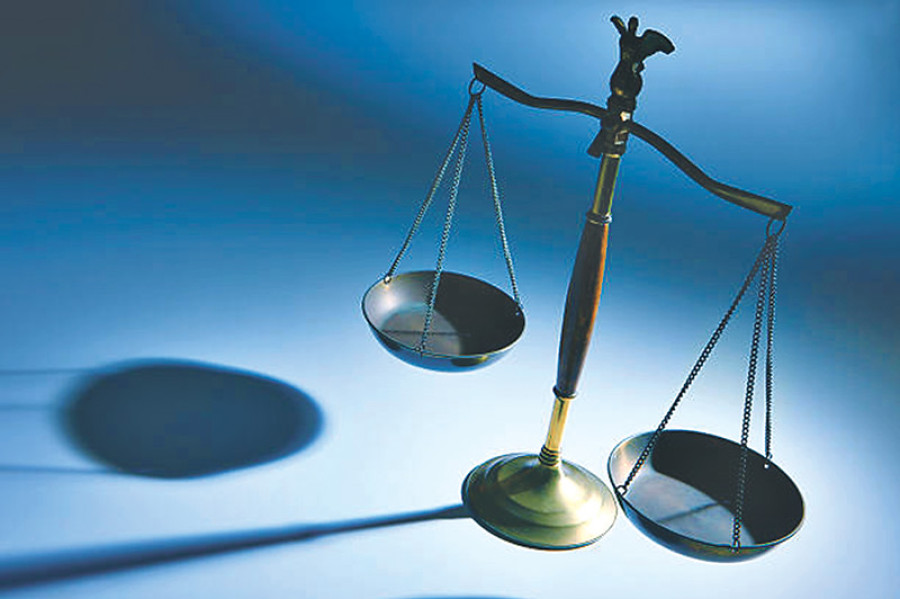Opinion
No enforcement
It is customary in democratic countries to have some normative expectations from political parties and political actors. These are commonly expressed as Codes of Conduct (CoCs).
Khagendra N. Sharma
It is customary in democratic countries to have some normative expectations from political parties and political actors. These are commonly expressed as Codes of Conduct (CoCs). These CoCs are usually developed by the agency in-charge of the responsibility for conducting elections in concurrence with the government and opposition parties. The intent behind the CoCs is to check the tendency towards the abuse of authority and resources, both among the government and opposition parties. Democracy is a game of competition. The contestants or the competitors are not always equal in strength and access, and the competition is not always fair. Normally, the party in government has power and access to government resources which often lends to abuse of such power. But there may also be times when the parties in opposition may have more resources in their hands on account of different reasons, such as external help or intensive internal mobilisation. Such resources are over spent with the intent of influencing certain sections of the people. The ultimate purpose of the CoCs is to check such excesses.
These CoCs are latent during normal times, but they are activated during the period specified by law for conducting relevant elections. The purpose of this review is to check whether the CoCs are being enforced fairly and followed with honesty.
Lack of control
I shall be focusing on two important agencies: the Election Commission (EC) and the political parties (PP). Let me start with the PP. The PPs have had a history of working either in exile or underground for a period of thirty years, when they were banned under the Panchayat system. The resentment against anything that is imposed by authority comes hence. Defying any form of control gives a sense of revolutionary achievement against repression. This is the main reason behind the absence of the systemisation of the rule of law in Nepal.
One main code for the parties is the limit on financial expenditure permissible for candidates for different levels of electoral seats. This system of control appears to have completely failed in controlling Nepali PPs, especially the large parties whether in government or in opposition. The violation of this code has been present from the early years of democratic practice, but it has been progressively on the rise over the years. The visible modes of expenditure in the form of publicity are conspicuously high; the invisible modes like feasting and cash distribution are much higher. The candidates and the PPs do not submit expenditure reports. But hardly any action is taken beyond calling for explanation.
The CoCs disallow the use of government vehicles and restrict the number of private or rented vehicles for poll promotion. This particular code is blatantly violated in practise. Similarly there is complete disregard for the code to avoid pompousness and maintain public decorum. Simplicity in campaigning has become a thing of the past. Some parties partly subsidise campaign expenditure, but most PPs select candidates not from their devoted set of party cadres, but from the moneyed people in society—whether their money is clean or not.
Toothless EC
Let us now turn our eyes towards the EC’s role. Normally, the EC is the ultimate authority to enforce the CoCs. But there is an inherent contradiction in this system. Laws and rules are backed by a given sustainable power so that when violated, the power can act accordingly. Thus the government provides the real power behind the potential implementation of the CoCs. But, if the government itself defies the CoCs, the EC remains a toothless entity.
Let me illustrate. One CoC restricts the transfer of government staff after the announcement of election dates. But the government has never complied with this CoC. In this year’s scenario, the government expanded the size of the Cabinet not once but several times, and the EC couldn’t do a thing to stop it. More shamefully, the poor Chief Election Commissioner told the President that this expansion did not constitute a violation of election CoCs! This was an obvious lie, and nothing but political prostitution. The failure to implement the CoCs unleashes a series of corrupt practices that will besiege our republic. The leaders, having spent heaps of money on the elections, will try to find loop holes to retrieve their investment—with interest. That will not be possible with honest officials under the leaders. This will have a multiplier effect of corruption levels. Political parties have not realised what they have unleashed. We are racing, not towards paradise, but towards hell. The weak Election Commission is to blame more than partly for that. The unrelenting PPs are to blame for the rest.
- Sharma is a political analyst




 20.22°C Kathmandu
20.22°C Kathmandu










